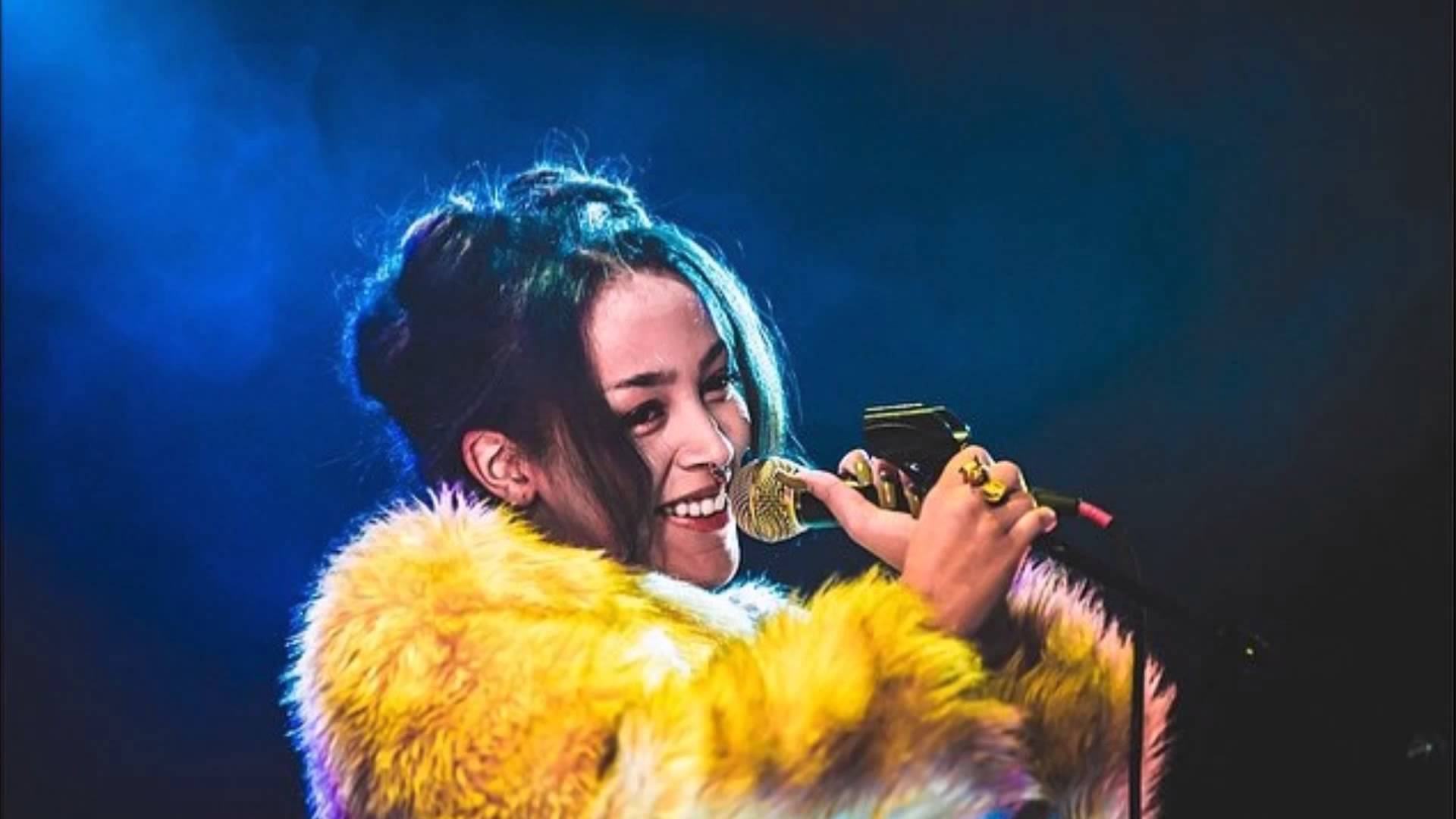Doja Cat Ethnicity: A Deep Dive Into The Roots Of The Queen Of Pop
Let me tell you something right off the bat: Doja Cat isn't just another pop star. She's a cultural phenomenon who's breaking boundaries and redefining what it means to be a global icon. But have you ever wondered about her ethnicity and how it shapes her music and persona? Well, you're in the right place because we're about to uncover the truth behind the queen's heritage and what makes her story so fascinating. So buckle up, because this is going to be a wild ride!
Doja Cat, the woman who brought "Say So" and "Woman" into our lives, has always been a mystery wrapped in a riddle. Her music transcends genres, her style is iconic, and her presence is nothing short of electrifying. But beneath the glitz and glamour, there's a rich tapestry of ethnic diversity that plays a huge role in her artistry. In this article, we're diving deep into her roots to understand how her ethnicity influences her work and why it matters.
Whether you're a longtime fan or just discovering her music, knowing more about her background can help you appreciate her journey even more. So, let's get to the bottom of it, shall we? Because understanding Doja Cat's ethnicity isn't just about facts—it's about appreciating the complexity of her identity and how it fuels her creativity.
Who Is Doja Cat?
Before we dive into her ethnicity, let's take a moment to appreciate who Doja Cat really is. Born Amala Ratna Zandile Dlamini, she's more than just a singer or rapper. She's a multi-talented artist who's been making waves in the music industry since her debut in 2014. From her viral hits to her unique fashion sense, Doja Cat has carved out a niche for herself that's both original and groundbreaking.
Biography of Doja Cat
Doja Cat was born on October 21, 1995, in Los Angeles, California. Her journey to fame wasn't an overnight success; it was built on years of hard work, dedication, and a willingness to experiment with different styles. Her parents, both artists in their own right, encouraged her to pursue her passion for music from a young age. And boy, did she take that advice to heart!
Data and Biodata
| Name | Amala Ratna Zandile Dlamini |
|---|---|
| Born | October 21, 1995 |
| Place of Birth | Los Angeles, California |
| Occupation | Singer, Rapper, Songwriter |
| Genre | Pop, Hip-Hop, R&B |
| Years Active | 2014 – Present |
Doja Cat Ethnicity: Breaking It Down
Now, let's get into the nitty-gritty. Doja Cat's ethnicity is as diverse as her music. She's a melting pot of cultures, and that's what makes her so fascinating. Her father, Douglas Dlamini, is from Swaziland, which is now known as Eswatini. Meanwhile, her mother, Deborah Diggs, has a mix of Jewish and African-American heritage. It's this blend of backgrounds that gives her a unique perspective on life and art.
Her African Roots
Doja Cat's connection to Africa runs deep. Her father's Swazi heritage plays a significant role in her identity. Swaziland, now Eswatini, is a country in Southern Africa known for its rich cultural traditions and vibrant arts scene. This influence can be seen in her music, where she often incorporates elements of traditional African sounds and rhythms. It's like she's paying homage to her roots while also pushing the boundaries of modern pop music.
Her Jewish and African-American Heritage
On her mother's side, Doja Cat has a mix of Jewish and African-American ancestry. This combination adds another layer to her identity, making her a true representation of multiculturalism. Her Jewish heritage brings a sense of resilience and community, while her African-American roots connect her to a rich history of musical innovation. It's this blend of influences that gives her music its unique flavor.
How Her Ethnicity Influences Her Music
Doja Cat's ethnicity isn't just a footnote in her biography; it's a driving force behind her artistry. Her diverse background allows her to experiment with different genres and styles, creating a sound that's truly one of a kind. Whether she's rapping about love or singing about empowerment, her music reflects the complexity of her identity.
Cultural Fusion in Her Songs
Take, for example, her hit song "Say So." The track blends pop, hip-hop, and R&B elements, creating a sound that appeals to a global audience. It's not just the music that's diverse; the lyrics and visuals also draw inspiration from her multicultural background. This cultural fusion is what sets her apart from other artists in the industry.
Breaking Stereotypes
Doja Cat doesn't just celebrate her ethnicity; she also challenges stereotypes and misconceptions. By embracing her diverse heritage, she shows the world that being multiracial is something to be proud of. In a world where people often feel pressure to conform, Doja Cat is a shining example of self-acceptance and authenticity.
Doja Cat's Impact on Pop Culture
Doja Cat's influence extends beyond the music industry. She's become a symbol of empowerment for people from all walks of life. Her ability to connect with fans from different cultural backgrounds is a testament to her universal appeal. Whether she's performing on stage or sharing her thoughts on social media, she's always authentic and unapologetically herself.
Representation Matters
For many fans, Doja Cat represents hope and possibility. She's proof that you don't have to fit into a specific mold to succeed in the entertainment industry. Her success is a reminder that diversity is strength, and that we should celebrate our differences rather than hide them.
Empowering the Next Generation
Doja Cat's impact on the younger generation can't be overstated. By showcasing her multicultural heritage, she's inspiring the next wave of artists to embrace their identities and use them as a source of creativity. It's not just about music; it's about creating a world where everyone feels seen and heard.
Challenges and Triumphs
Of course, Doja Cat's journey hasn't been without its challenges. As a multiracial artist, she's faced her fair share of criticism and misunderstanding. But instead of letting it bring her down, she's used it as fuel to push forward. Her ability to overcome obstacles and continue thriving is a testament to her resilience and determination.
Overcoming Stereotypes
One of the biggest challenges Doja Cat has faced is breaking free from stereotypes. In an industry that often tries to pigeonhole artists, she's managed to carve out a space for herself that's both authentic and inclusive. By staying true to her roots, she's shown the world that there's no one-size-fits-all when it comes to success.
Triumph Through Music
Music has been Doja Cat's greatest ally in overcoming adversity. Through her songs, she's been able to express her emotions, share her story, and connect with fans on a deeper level. It's this authenticity that resonates with people and keeps them coming back for more.
Looking Ahead
So, where does Doja Cat go from here? With her diverse background and undeniable talent, the sky's the limit. She's already made a name for herself in the music industry, but there's no telling what the future holds. One thing's for sure, though: she'll continue to inspire and empower people with her art.
Continuing the Legacy
Doja Cat's legacy isn't just about her music; it's about the impact she's had on the world. By celebrating her multicultural heritage, she's paved the way for future generations to embrace their identities and use them as a source of strength. It's a legacy that will continue to grow and evolve as she continues to push boundaries and break new ground.
What Fans Can Expect
Fans can expect more of the same from Doja Cat: groundbreaking music, stunning visuals, and a commitment to authenticity. She's not afraid to experiment and take risks, and that's what makes her so exciting to watch. Whether she's exploring new genres or collaborating with other artists, she's always bringing something fresh to the table.
Conclusion
In conclusion, Doja Cat's ethnicity is more than just a label; it's a vital part of who she is as an artist and a person. Her diverse background has shaped her music, her persona, and her impact on the world. By embracing her multicultural heritage, she's become a symbol of empowerment and inspiration for people everywhere.
So, what can you do? First, share this article with your friends and family to help spread the word about Doja Cat's incredible story. Second, check out her music if you haven't already—you won't regret it. And finally, leave a comment below and let us know what you think about her journey. Together, we can continue to celebrate the diversity that makes Doja Cat so special.
Table of Contents
- Who Is Doja Cat?
- Doja Cat Ethnicity: Breaking It Down
- Her African Roots
- Her Jewish and African-American Heritage
- How Her Ethnicity Influences Her Music
- Cultural Fusion in Her Songs
- Breaking Stereotypes
- Doja Cat's Impact on Pop Culture
- Representation Matters
- Empowering the Next Generation
- Challenges and Triumphs
- Overcoming Stereotypes
- Triumph Through Music
- Looking Ahead
- Continuing the Legacy
- What Fans Can Expect
- Conclusion



Detail Author:
- Name : Dell King
- Username : zulauf.isadore
- Email : douglas.angie@hotmail.com
- Birthdate : 2001-09-02
- Address : 24254 Christiana Ridges Apt. 069 Keeblerview, WI 11537-4333
- Phone : +1-979-529-2210
- Company : Harris, Beier and Cummings
- Job : Woodworking Machine Setter
- Bio : Unde quo quaerat sunt hic similique quos sunt. Unde sit perferendis eum. Quas quo modi facilis qui quia nihil id ut. Sapiente fuga vero quae atque qui.
Socials
facebook:
- url : https://facebook.com/alta.jacobson
- username : alta.jacobson
- bio : Fuga aspernatur enim commodi amet est commodi.
- followers : 4508
- following : 2848
instagram:
- url : https://instagram.com/jacobson2005
- username : jacobson2005
- bio : Aut impedit in aliquam. Sint eius molestias eius.
- followers : 2610
- following : 2904
tiktok:
- url : https://tiktok.com/@jacobsona
- username : jacobsona
- bio : Enim architecto fuga nisi eos dolor molestiae natus.
- followers : 2212
- following : 2641